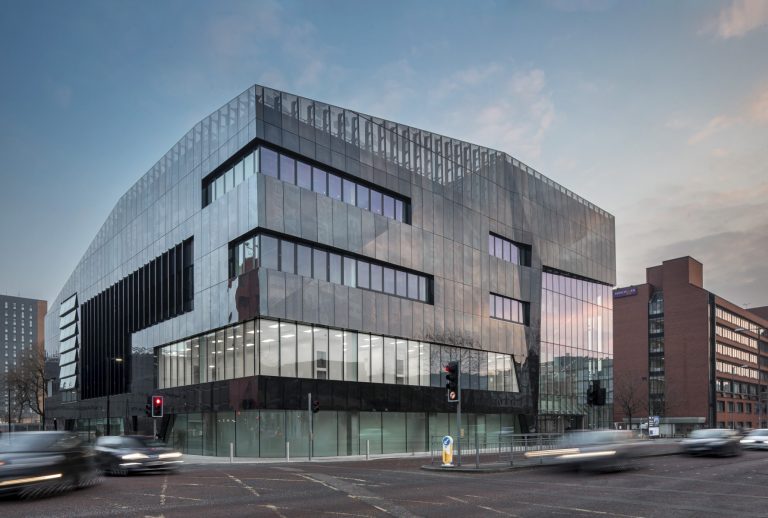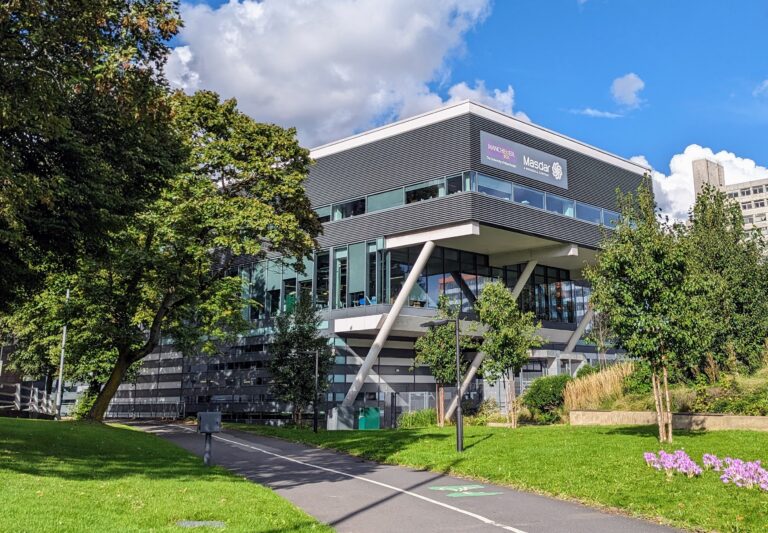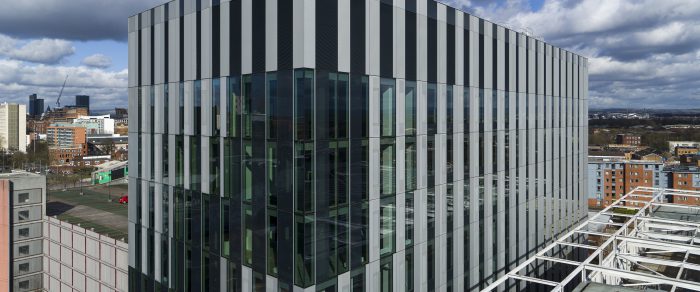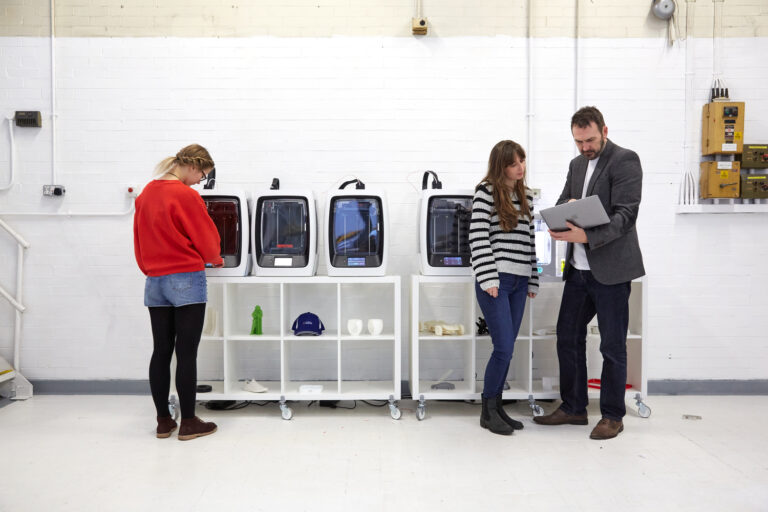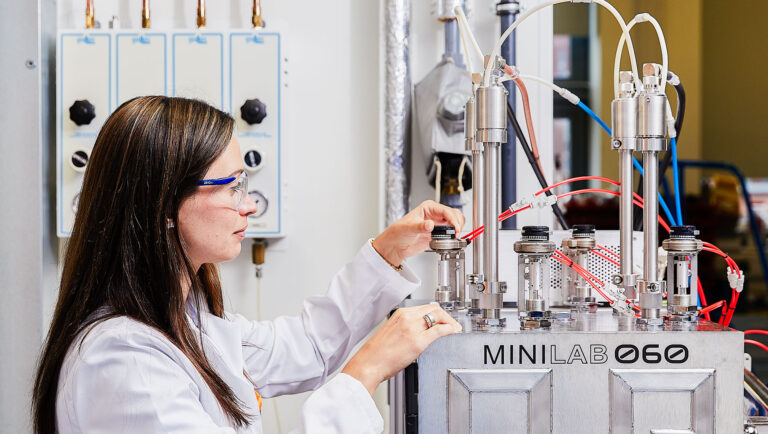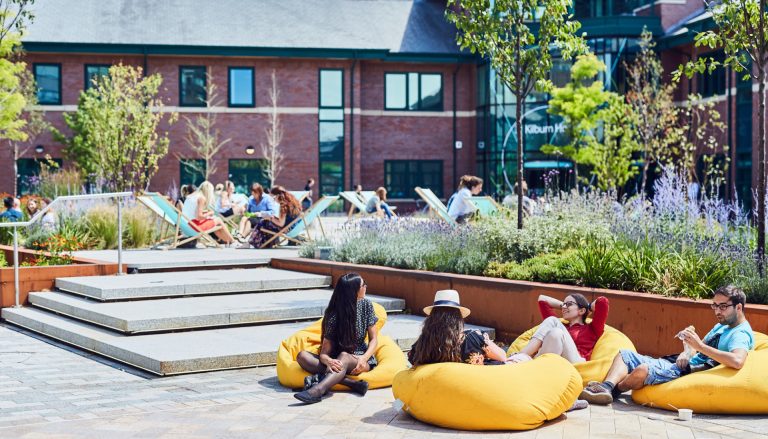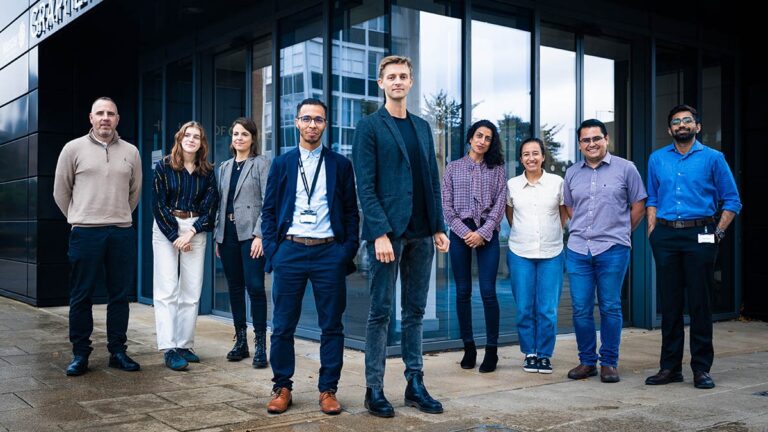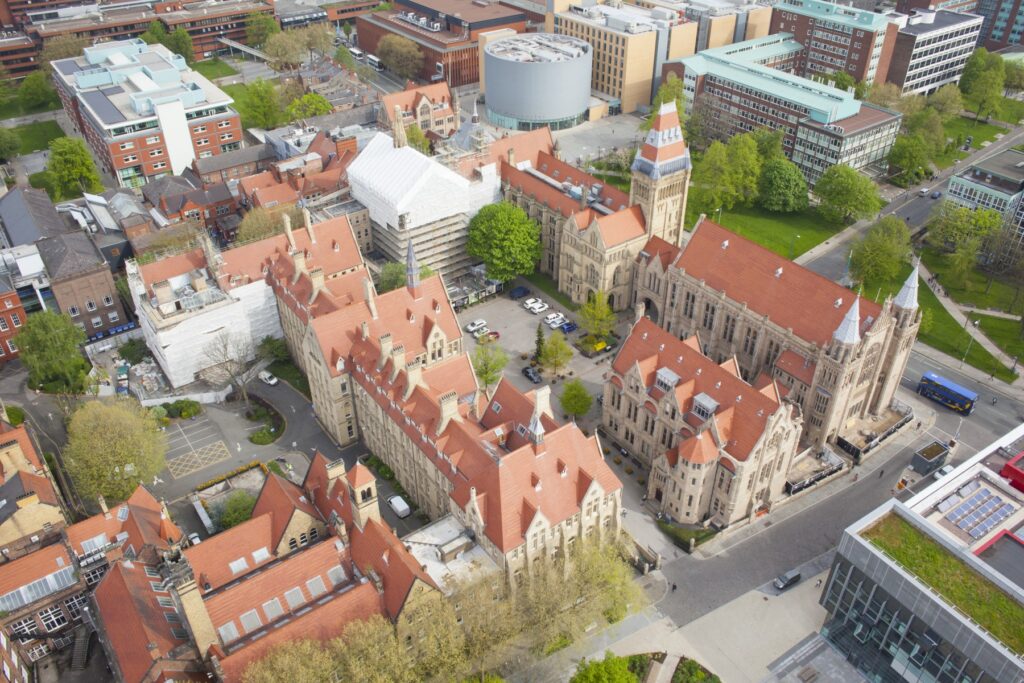Advanced Materials
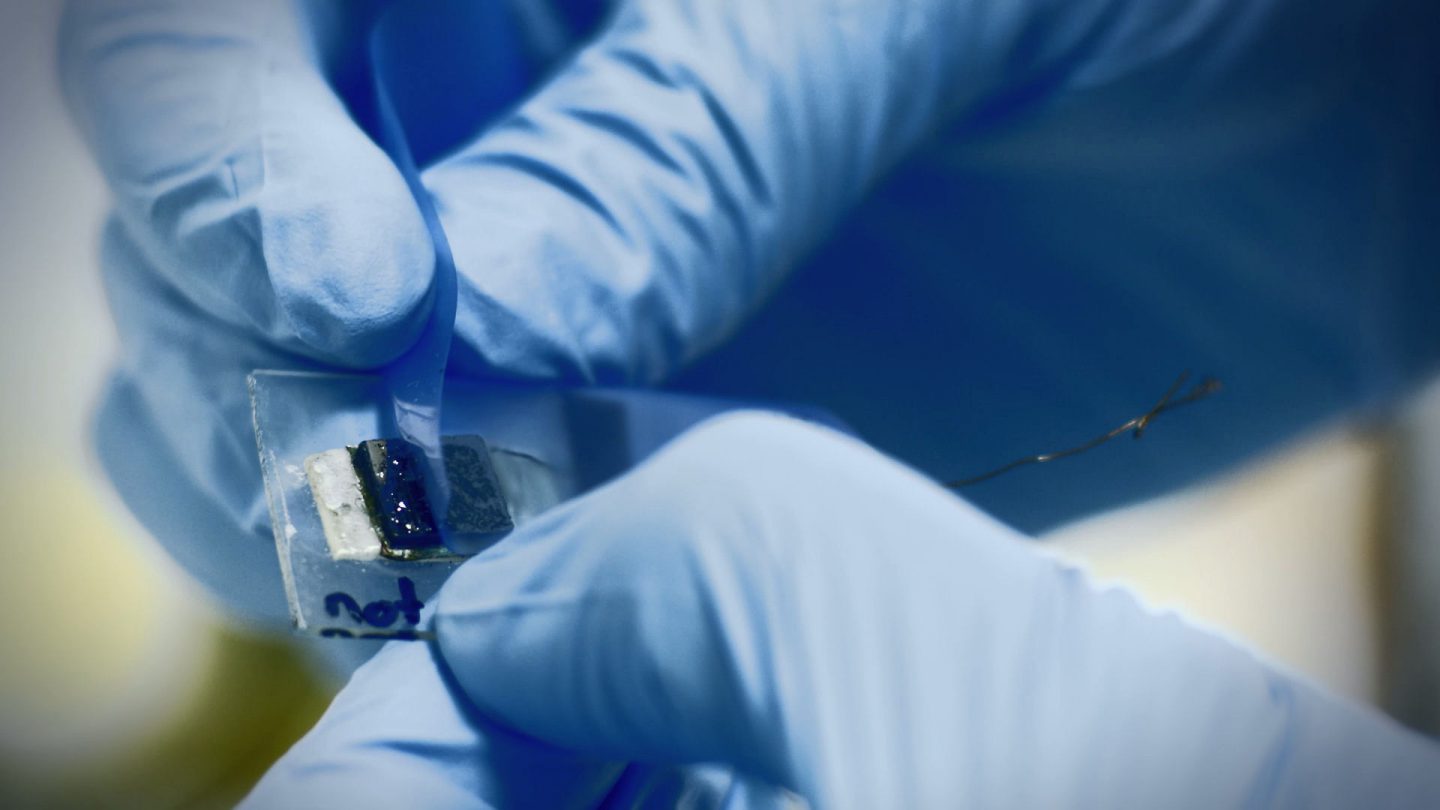
University of Manchester’s Nobel prize winners Andre Geim and Konstantin Novoselov were recognised for the discovery of the two-dimensional material graphene.
“I think we need thousands of institutions like the GEIC around the country. This ‘labtry’ – a lab/factory hybrid – brings research into the tough world of commercialization, and we do not have enough of this infrastructure.
We are very privileged to be working here because we can scale things up: we have a lab where we can conduct benchtop experiments in small beakers, but we can also scale these experiments up to build a production line. When investors visit, we are able to show them that our work is a real thing and not just a concept in a lab.”
Dr. Seb Leaper, CEO & Co-Founder
University of Manchester spin-out Watercycle Technologies
The University of Manchester is a world leader in developing new and existing materials. The University’s leading position in the new physics of 2D materials was recognised with the award of the 2010 Nobel Prize in Physics to two of its professors, Andre Geim and Kostya Novoselov, for their pioneering work on graphene. However, the ambition for the Oxford Road Corridor is not just to be known as the birthplace of graphene, but to be the centre of international commercialisation for a wide range of 2D and advanced materials linked to new industry 4.0 manufacturing methods.
This ambition has been spearheaded through more than £120m of capital funding to establish the National Graphene Institute (an academic-led research centre, developing the new physics of 2D materials) and the Graphene Engineering Innovation Centre (which works with industry to rapidly develop and scale up new 2D materials applications). These centres of excellence, along with the Henry Royce Institute for Advanced Materials and the Manchester Fuel Cell Innovation Centre, provide an unrivalled set of lab-to-market facilities and a community of leading materials scientists and engineers that attract investment and innovators from around the globe. Over 1,000 industry partnerships exist with firms working in advanced materials, including BAE systems, AkzoNobel, BP, GKN, Siemens, and Unilever.
The commercial offer for advanced manufacturing has been enhanced with the completion of the new 91,000 sq. ft BASE building on Manchester Science Park, which will provide specialist premises for light manufacturing and materials science businesses building on the existing cluster that includes Carbon Air, Steama Co, and i2i Pipelines.
Manchester Metropolitan University’s PrintCity facility, to the west of the Corridor, has an extensive range of 3D printing and additive manufacturing facilities. There are strong links with local SMEs through to global multinationals, as well as with the GM Growth Company.
.

